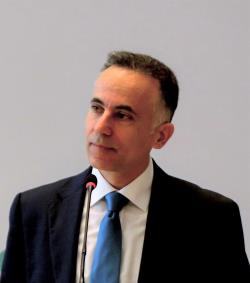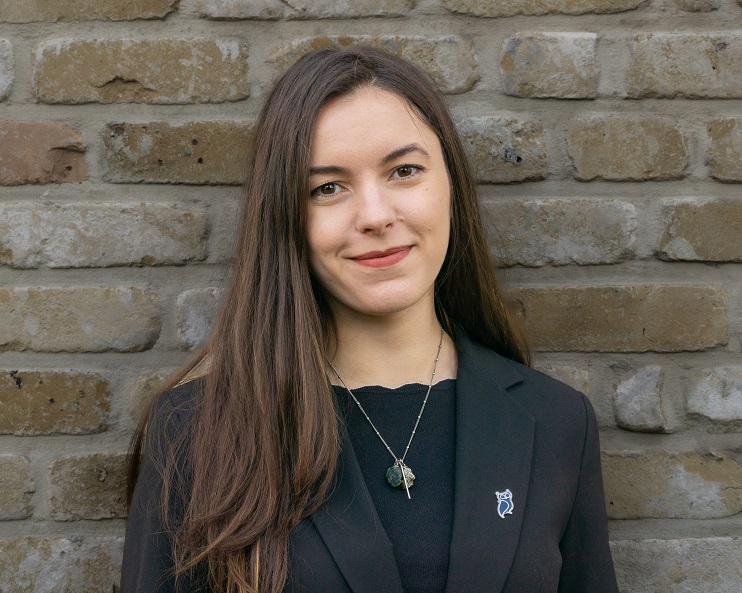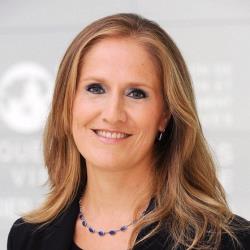WSIS Action Line C10: The Future of the Ethical Dimensions of the Information Society: Impact of Artificial Intelligence
UNESCO
Session 179
Amidst the alluring promises of digital technology for good, we see heightened inequality, surveillance, and discrimination, often further fueled by artificial intelligence (AI) systems. In 2024, where about 3 billion people are going to cast their vote, the increasingly advancing capabilities and adoption of generative AI and related emerging technologies underscore the need for a societal discussion on the impact of AI systems, and the need for robust AI governance mechanisms. This session will revolve around ethical implications of AI on the information society at large, and propose actionable solutions to address the current challenges posed by the steadfast integration of AI across every layer of society.
UNESCO has been working on the ethical and governance considerations of science and technology for several decades. It has promoted rigorous analysis and multidisciplinary and inclusive debate regarding the development and application of emerging technologies. Its World Commission on the Ethics of Scientific Knowledge and Technology (COMEST) and its International Bioethics Committee (IBC) have delivered major reports on many of these issues, including on neurotechnology, robotics and ethics of climate engineering. The multi-stakeholder work culminated in the adoption of the Recommendation on the Ethics of AI in 2021 by 193 Member States, framing the global ethical agenda on how AI will be developed and used, underscoring UNESCO's ethical mandate and dedication to guiding technological advancement towards a future marked by equity and inclusivity. This pioneering global standard mandates that AI systems and their developers adhere to principles of ethics, human rights, dignity, fairness, and sustainability. The Recommendation is now being implemented in over 50 countries through actionable tools including the Readiness Assessment Methodology and the Ethical Impact Assessment, with multistakeholder involvement as an integral and transformative aspect of the entire implementation process.
AI plays a critical role in the information society. Experts estimate that as much as 90 percent of online content may be synthetically generated by 2026, according to a report from Europol. From news articles to personalized recommendations, from social media posts to generated images and videos, AI is no longer just a tool for support, but increasingly a content creator in its own right. The rise of AI-generated content has also led to discussions about ethical issues and the need for guidelines. AI-based content has the potential to spread disinformation, infringe copyrights, and misuse personal information. It is therefore important that policies and regulations are developed to mitigate these risks.
Looking towards the future, the vision for WSIS Beyond 2015, towards 2025, is to establish a “people-centered, inclusive and development-oriented information society” for harnessing the potential of information and communication technologies for sustainable development. UNESCO’s work on the ethics of AI is closely aligned with the WSIS objectives and process. In the framework as facilitator for action line C10 (Ethical Dimensions of the Information Society), UNESCO is actively promoting cooperation to ensure the development of universally held values and principles to further inclusive knowledge societies. This approach should encompass the design, development, deployment, and procurement of AI systems in a mutually supportive, inclusive, and holistic manner.
With reference to recent developments, this panel will focus on the impact of AI for the information society, and discuss strategies to future-proof an ethical approach to the governance of AI technologies by all actors.

Executive Director of Globethics, international organization, which head office is in Geneva, Switzerland, working for ethical leadership through higher education and global engagement. Prof. Fadi Daou is Laureate of the Elevate Prize 2020 for Global thinkers and change-makers. Daou is a Policy advisor and Professor in geopolitics of religions, inclusive development, and peace. Having lead pioneer projects for countering online extremism, he now leads the engagement of Globethics in ethics of AI and emerging technologies, with the recent publication: Inclusive AI for a better future.
https://www.linkedin.com/in/fadidaou/
https://twitter.com/fdaoulb
.jpg?maxwidth=250)
Amanda is a lawyer and political scientist with experience in law & technology, public policy, and socio-technical research in AI. Her career is focused on bridging the gap between emerging technologies, the rule of law, and democracy. Her main research topics have been on policies and regulations to combat disinformation, digital and information literacy, AI accountability and transparency, responsible AI in the public sector, and the current challenges for ethics in the AI industry.

Dr Ricardo Baptista Leite is a Portuguese-Canadian medical doctor trained in infectious diseases with extensive experience in global health, health systems and science-based policymaking. Prior to his current role as CEO of 'HealthAI - The Global Agency for Responsible AI in Health' in Geneva, Dr. Ricardo served four terms as a Member of Parliament in Portugal on both health and foreign affairs committees. Ricardo is a city councillor in Sintra and previously served as Deputy Mayor of Cascais.
He is the founder and President of the 'UNITE Parliamentarians Network for Global Health', a network of current and former policymakers from 110 countries. With more than 15 years of academic experience, he is Chair of the Board of the Harvard-Charité Global Health Policy Lab, based in Berlin, and Chair of the Centre for Global Health at NOVA University Information Management and Data Science School in Lisbon. He completed postgraduate studies at Johns Hopkins University, Harvard Kennedy School of Government and Harvard Medical School. Previously, Dr Baptista Leite worked as a practising physician in the Portuguese National Health Service for several years, including an internship at the World Health Organization.
More recently, he served as a medical volunteer both during the COVID pandemic in his hometown hospital in Portugal for over a year and as part of a humanitarian mission at the Lviv Regional Hospital in Ukraine during the first summer after the beginning of the war.

Ashutosh is currently responsible for building partnerships with UN and other International organizations to enable the responsible use of technology through policy and programmatic interventions to advance the achievement of the sustainable Development goals and socio economic growth, enabling innovation ecosystems, inclusion and safety and security.
Till recently he was the Director and Country Head Corporate Affairs and Public Policy for India and South Asia at Microsoft. In his role, he worked closely with key audiences in the Government, Academia, Industry as well as Multilaterals to help frame policies which enable deepening of usage of technology, driving digital inclusion and growth as well as ensure innovation and safety of the digital ecosystem. .
In a career spanning over 37 years, Ashutosh has worked at Mastercard, Wipro Ltd, Intel India, Shell India Pvt Ltd, NIIT and the National Dairy Development Board. A Management graduate from the institute of Rural management of Anand Gujarat, Ashutosh has had extensive experience in Business Development, Channel Management, Strategic Planning and Corporate Affairs, Government Relations and Policy Advocacy.
Ashutosh is a regular speaker at National and International fora on topics ranging from Corporate Affairs, Public Policy, Education, CSR, Innovation and Entrepreneurship. He has spoken at events hosted by WB, WTO, UNICEF, UNESCO as well as National and International Academic Institutions.
Ashutosh is passionate about advocating the use of technology for socio economic development and improving lives through education, innovation, and entrepreneurship.
Involved in mentoring startups, coaching students, and executives – Ashutosh is also a certified Level 2 NS-NLP Executive and Corporate Coach.
In his spare time Ashutosh loves to read, listen to music and travel.

Mariagrazia Squicciarini is Chief of Executive Office and Director a.i. at the Social and Human Sciences Sector (SHS) of the United Nations Educational, Scientific and Cultural Organization (UNESCO).
At UNESCO, Mariagrazia supervises, coordinates, steers and helps advance policy-relevant work related to the social transformation, including the ethics of science and technology – in particular, of Artificial Intelligence; the youth; sport and antidoping; inclusion, antiracism and gender.
In the past, she has led and contributed policy relevant analysis related to the changing determinants of growth and productivity; the economics of Intellectual Property Rights (IPR); knowledge-based capital; global value chains; the digital transformation and AI; job and skill dynamics; and the digital gender divide.
Mariagrazia holds a Ph.D. in Economics from the University of Essex (UK). Before joining UNESCO, Mariagrazia worked for more than ten years at the OECD Directorate for Science Technology and Innovation as Senior Economist – Head of Unit. Prior to joining the OECD, she had a number of appointments, including at VTT Technical Research Centre of Finland (FI), the University of Essex (UK) and the European Commission-Joint Research Centre (IPTS, ES).
She has published extensively and has been acting as a reviewer for international peer-review journals and governments.
-
 C1. The role of governments and all stakeholders in the promotion of ICTs for development
C1. The role of governments and all stakeholders in the promotion of ICTs for development
-
 C2. Information and communication infrastructure
C2. Information and communication infrastructure
-
 C4. Capacity building
C4. Capacity building
-
 C10. Ethical dimensions of the Information Society
C10. Ethical dimensions of the Information Society
-
 C11. International and regional cooperation
C11. International and regional cooperation
The session is closely linked to the World Summit on the Information Society (WSIS) Action Lines, particularly Action Line C10: Ethical Dimensions of the Information Society:
Addressing AI’s Ethical Implications: The session focuses on the ethical implications of AI and the need for robust AI governance mechanisms. This aligns with Action Line C10’s objective of promoting universally held values and principles for inclusive knowledge societies.
Implementing the Recommendation on the Ethics of AI: The session discusses the implementation of UNESCO’s Recommendation on the Ethics of AI in over 50 countries. This Recommendation, which mandates adherence to principles of ethics, human rights, dignity, fairness, and sustainability, is a pioneering global standard that aligns with the WSIS vision of a people-centered, inclusive, and development-oriented information society.
Promoting Multistakeholder Involvement: The session emphasizes the importance of multistakeholder involvement in the implementation process of the Recommendation. This approach is in line with the WSIS process, which encourages cooperation and collaboration among all stakeholders.
Shaping the Ethical Dimensions of AI: The session aims to shape the ethical dimensions of AI as part of the information society, in line with the WSIS process and its vision for 2025. This involves operationalizing the need for ethics at every stage of the AI system lifecycle to ensure a responsible, human-rights-based approach to AI governance.
-
 Goal 1: End poverty in all its forms everywhere
Goal 1: End poverty in all its forms everywhere
-
 Goal 2: End hunger, achieve food security and improved nutrition and promote sustainable agriculture
Goal 2: End hunger, achieve food security and improved nutrition and promote sustainable agriculture
-
 Goal 3: Ensure healthy lives and promote well-being for all
Goal 3: Ensure healthy lives and promote well-being for all
-
 Goal 4: Ensure inclusive and equitable quality education and promote lifelong learning opportunities for all
Goal 4: Ensure inclusive and equitable quality education and promote lifelong learning opportunities for all
-
 Goal 5: Achieve gender equality and empower all women and girls
Goal 5: Achieve gender equality and empower all women and girls
-
 Goal 6: Ensure access to water and sanitation for all
Goal 6: Ensure access to water and sanitation for all
-
 Goal 7: Ensure access to affordable, reliable, sustainable and modern energy for all
Goal 7: Ensure access to affordable, reliable, sustainable and modern energy for all
-
 Goal 8: Promote inclusive and sustainable economic growth, employment and decent work for all
Goal 8: Promote inclusive and sustainable economic growth, employment and decent work for all
-
 Goal 9: Build resilient infrastructure, promote sustainable industrialization and foster innovation
Goal 9: Build resilient infrastructure, promote sustainable industrialization and foster innovation
-
 Goal 10: Reduce inequality within and among countries
Goal 10: Reduce inequality within and among countries
-
 Goal 11: Make cities inclusive, safe, resilient and sustainable
Goal 11: Make cities inclusive, safe, resilient and sustainable
-
 Goal 12: Ensure sustainable consumption and production patterns
Goal 12: Ensure sustainable consumption and production patterns
-
 Goal 13: Take urgent action to combat climate change and its impacts
Goal 13: Take urgent action to combat climate change and its impacts
-
 Goal 14: Conserve and sustainably use the oceans, seas and marine resources
Goal 14: Conserve and sustainably use the oceans, seas and marine resources
-
 Goal 15: Sustainably manage forests, combat desertification, halt and reverse land degradation, halt biodiversity loss
Goal 15: Sustainably manage forests, combat desertification, halt and reverse land degradation, halt biodiversity loss
-
 Goal 16: Promote just, peaceful and inclusive societies
Goal 16: Promote just, peaceful and inclusive societies
-
 Goal 17: Revitalize the global partnership for sustainable development
Goal 17: Revitalize the global partnership for sustainable development
UNESCO’s Recommendation on the Ethics of Artificial Intelligence has a strong emphasis on closing the gaps arising from AI technologies, as well as addressing their downside risks. It states that the values and principles detailed in the Recommendation should be respected by all AI actors, and deployed in compliance with internationally agreed sustainability objectives, such as the SDGs. The objective of the Recommendation is to achieve inclusive and ethical outcomes, and to put the people at the centre of AI development and implementation.
Implementation of the Recommendation contributes directly to various SDGs by creating an enabling environment to approach the whole AI life cycle ethically, i.e., from research, to design and development, to deployment and use, including maintenance, operation, trade, financing, monitoring and evaluation, validation, end-of-use, disassembly, and termination. It will also help to strengthen institutional capacities of the countries and foster partnerships. Specifically, the implementing of the Recommendation contributes to many focus areas of the SDGs: enhancing education and knowledge sharing, both through North-South collaborations and South-South cooperation (SDG 4.4 & 4.7); advancing equality in general, particularly by ensuring inclusion and diversity in the teams of developers of AI (SDG 10.3); addressing gender inequality, with precise information gender affirmative actions needed to close the gender gap related to digital technologies (5.b); ensuring that all countries have the needed infrastructure to benefit from AI and develop it locally (SDG 9.b & 9.c); ensuring AI is not harming the environment and contribute towards the climate transition, as the only international instrument that has an environment-related chapter(SDG 13.3); and strengthening institutions (SDG 16.7), as well as 16.B Promoting and enforcing non-discriminatory laws and policies for sustainable development.
UNESCO Recommendation on the Ethics of AI: https://unesdoc.unesco.org/ark:/48223/pf0000381137